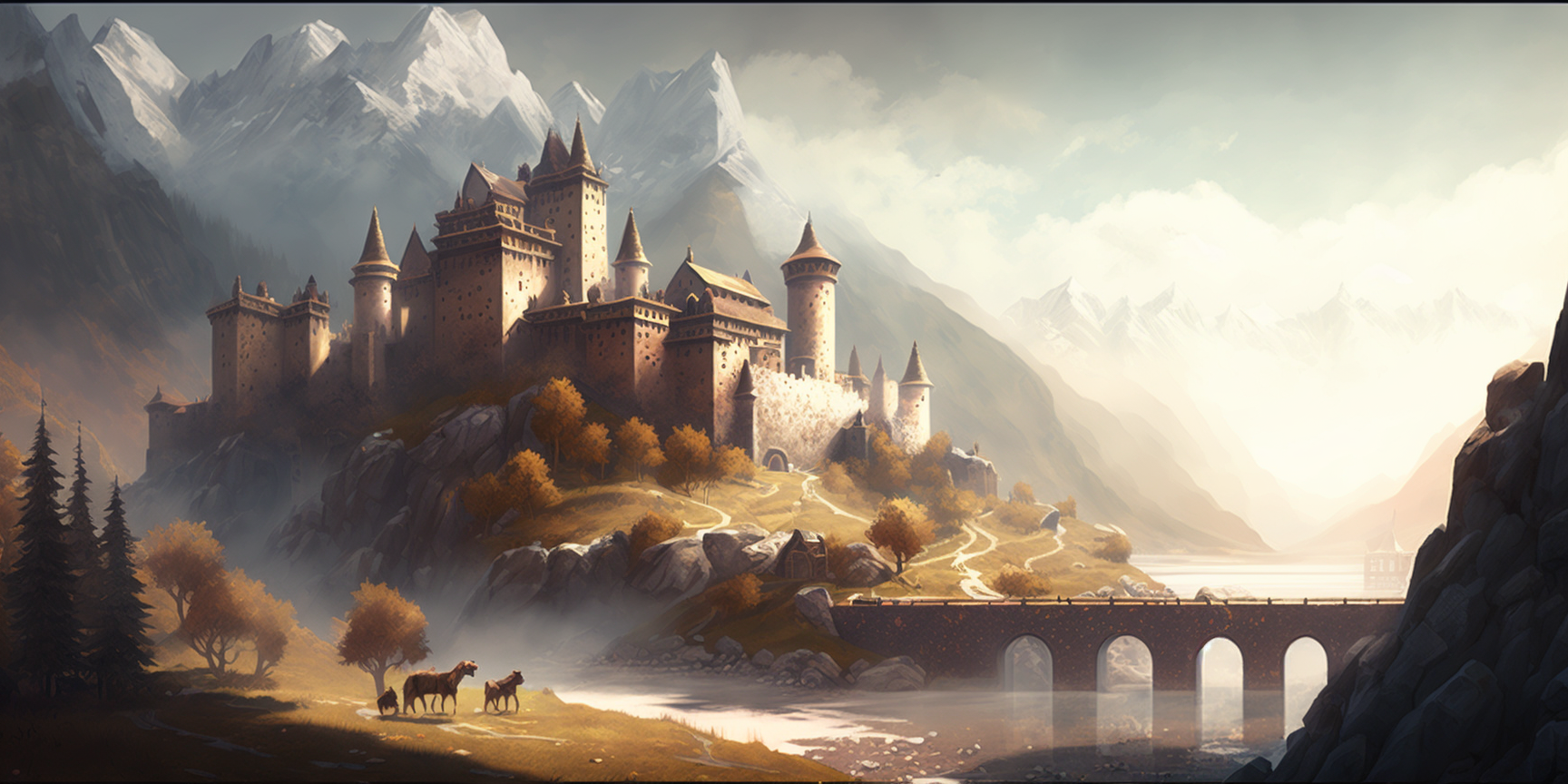Defining Medieval Fantasy
In this chapter I am trying to set the stage of what I define as the Medieval Fantasy setting that I will be using across this book.
Medieval fantasy is a genre which encompasses stories that draw parallels between our world's 8th to 17th century and adds the ideas that magic, a multiplicity or sapient species, aliens, monsters, curses, living gods, multiple realities and dimensional planes exist. Suffice it to say, the above, constitute only a subset of the inherit changes that "fantasy" as a genre introduces, simply put, it is an utter mess.
Simplifying & Condensing 900 years
To keep things simple and because I want to keep this book as open as possible, from time to time I will making some assumptions. These assumptions will be clearly marked with a box like on the right hand side of this article.
Also, I would like to make it clear that the medieval times is a very long period of time that the meaning of things, titles, traditions, beliefs etc. changed radically. The information presented in this book will be heavily historically informed but I will be gathering from multiple sources and simplifying it into clean and digestible, easy to follow outputs.
For example, in most fantasy settings make use of copper, silver, gold, platinum coins at a simplified, compared to actual history 1/10th of the value for for the coin down (1 silver = 10 copper, 10 silver = 1 gold piece). I will not be using the 1/8, 1/16 or 1/12 systems used by many historical coins, but at the same time the standard for this book will be the SILVER standard, not gold as in most tabletop RPG systems. That means that a Sword that in your players handbook costs 10gp (gold pieces) for this book it costs 10 silver pieces. Gold was not and should not be that abundant, I believe that it devalues it and also makes it less special for the players when they find a gold coin or ring. As a sidebar, most TTRPG arms and equipment values make little sense, in this book I will also be creating an alternative pricing system based on historical values and the actual cost of time and resources required to build an item.
How Magic changes things
Mundane history aside, the very existence of magic in a fantasy world changes everything. Janet and I wrote about it on our Porcelain Argument article back in 2015, but to summarise, if magic exists a lot of the solutions and technological breakthroughs never would have happened since magic would have filled that gap. In addition that also means that the "technological" tree of discoveries would have also been quite different, in both its order but also entries. As a rule of thumb the more powerful and more widely available magic is, the more technology and science (as we understand it) would have stagnated or changes to fill other gaps not able ot be addressed by the existence of magic. For the purposes of this book, magic is considered to be a fundamental force of the world, that can be studied, understood and used better as this study progresses, but can also be found as a wild, innate or divine property.
With that out of the way, let's talk about Feudalism and Manorialism



Nice ideas. And many historical societies (like the Nordic countries) used silver as a standard for coinage (including hack silver).
Hacksilver is generally a sign of non centralised or very abstract government and the starting point of many societies around the world :)
World Anvil Founder & Chief Grease Monkey
Twitter | World Anvil Changelog
“No act of kindness, no matter how small, is ever wasted.” - Aesop
More in line with the decentralised governments such as specific tribal groups then. They'd share a common set of laws & beliefs between groupings in a region, but usually no "top dog" overall calling the shots.